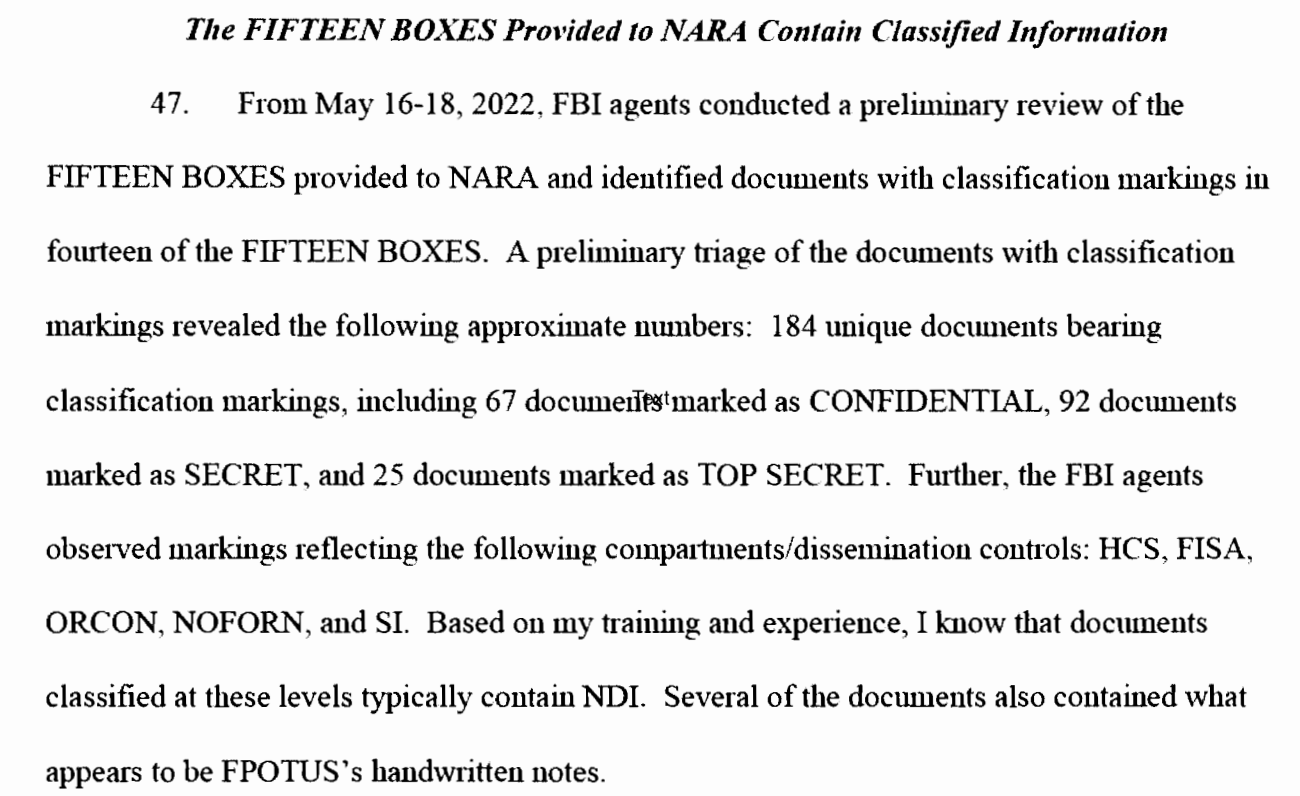
An FBI affidavit outlining the justification for the search of Donald Trump’s Mar-a-Lago property has revealed that the former president held onto hundreds of classified documents after he left office.
A redacted copy of the 32-page affidavit was released by the Justice Department on Friday in response to public pressure over its extraordinary search of Mr Trump’s resort and residence.
During that search, on 8 August, FBI agents carried away 20 boxes containing 11 sets of classified government records, some of which were labeled “top secret.”
While the affidavit does not describe what was seized in the search of Mar-a-Lago, it reveals for the first time the precise number of classified and secret documents contained in 15 boxes that were returned by Mr Trump to the National Archives in January.
The scale of secret documents found in those returned boxes, which were reviewed by the National Archives in May, was cited by the FBI as a justification for the Mar-a-Lago search, as they suspected Mr Trump was in possession of even more classified material.
FBI agents carried away a further 20 boxes following their search of Mar-a-Lago containing 11 sets of classified government records, some of which were labeled "top secret."
Here is what was contained in those 15 boxes, according to the FBI affidavit:
15 boxes of documents
184 unique documents bearing classification markings
67 documents marked as CONFIDENTIAL
92 documents marked as SECRET
25 documents marked as TOP SECRET
Several of Mr Trump’s handwritten notes

These classification categories are defined by the Code of Federal Regulations as follows:
“Top Secret refers to national security information or material which requires the highest degree of protection. The test for assigning Top Secret classification is whether its unauthorized disclosure could reasonably be expected to cause exceptionally grave damage to the national security. Examples of exceptionally grave damage include armed hostilities against the United States or its allies; disruption of foreign relations vitally affecting the national security; the compromise of vital national defense plans or complex cryptologic and communications intelligence systems; the revelation of sensitive intelligence operations; and the disclosure of scientific or technological developments vital to national security. This classification is to be used with the utmost restraint.
Secret refers to national security information or material which requires a substantial degree of protection. The test for assigning Secret classification shall be whether its unauthorized disclosure could reasonably be expected to cause serious damage to the national security. Examples of serious damage include disruption of foreign relations significantly affecting the national security; significant impairment of a program or policy directly related to the national security; revelation of significant military plans or intelligence operations; and compromise of significant scientific or technological developments relating to national security. The classification Secret shall be sparingly used.
Confidential refers to national security information or material which requires protection, but not to the degree described in paragraphs (a) (1) and (2) of this section. The test for assigning Confidential classification shall be whether its unauthorized disclosure could reasonably be expected to cause damage to the national security.”
The affidavit further noted that within those classifications were documents that were subject to strict dissemination controls, meaning they were only allowed to be shared with certain people under certain conditions.
Those controls were the following:
ORCON: Originator control
NOFORN: No foreign nationals
HCS: HUMINT (human intelligence) Control System.
SI: COMINT (communication intelligence, or intercepts) Special Intelligence







